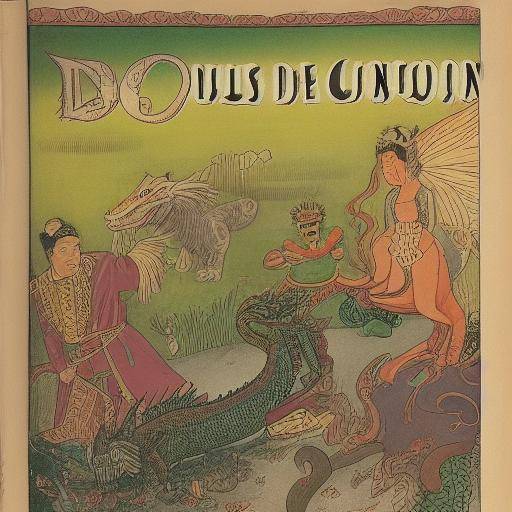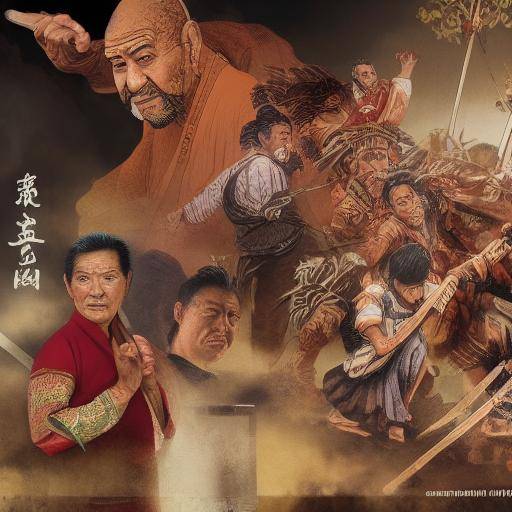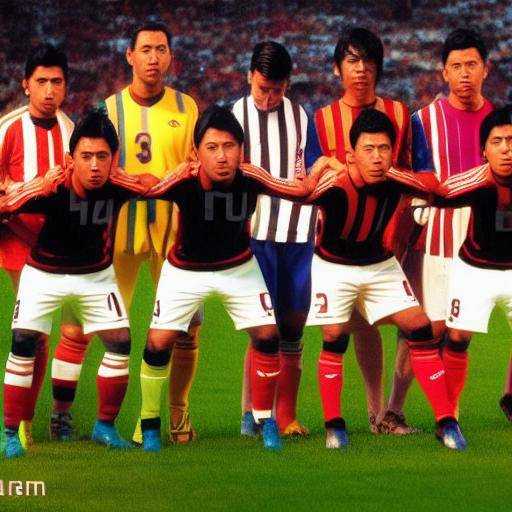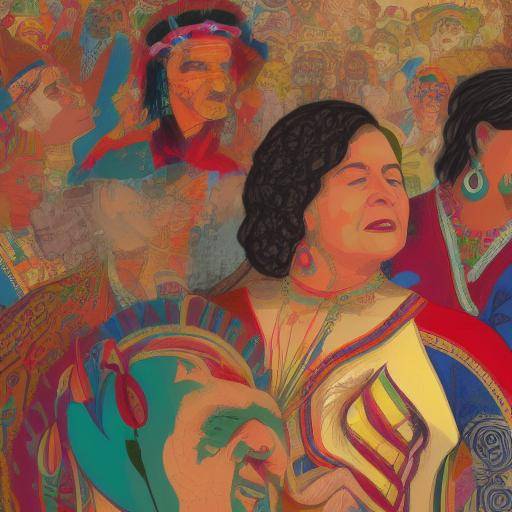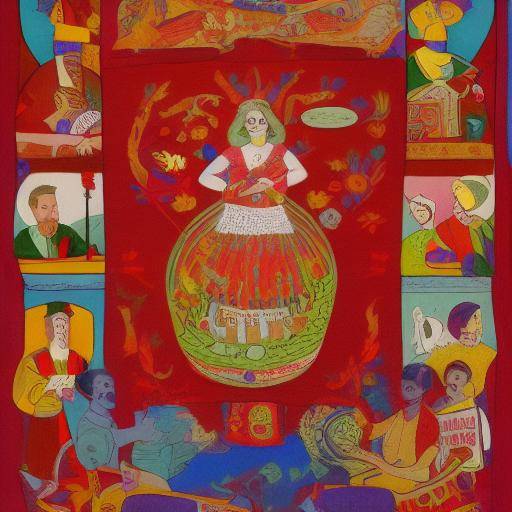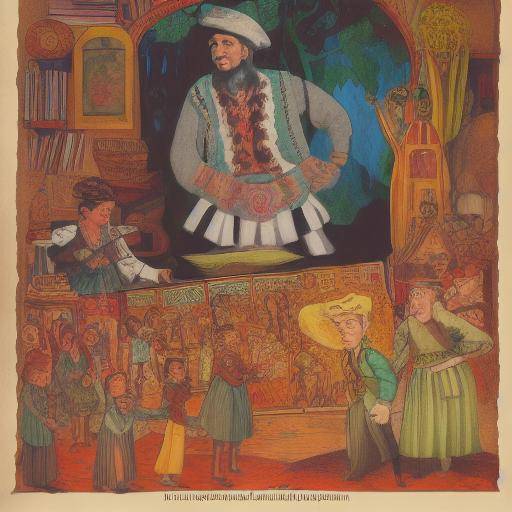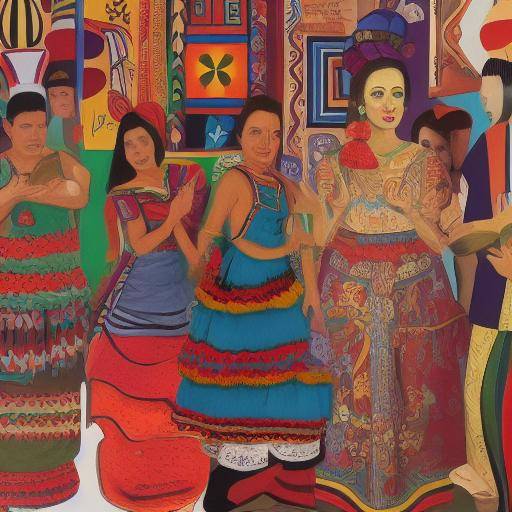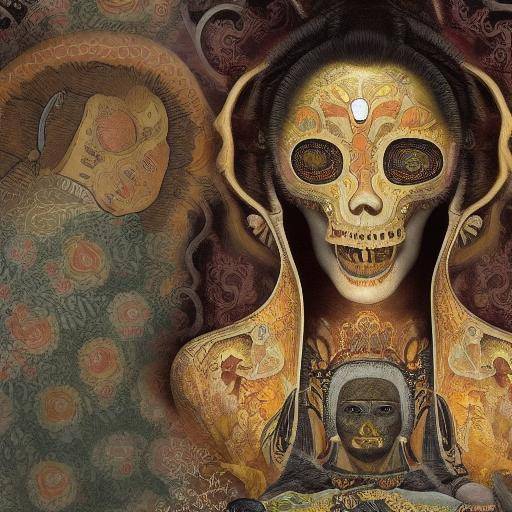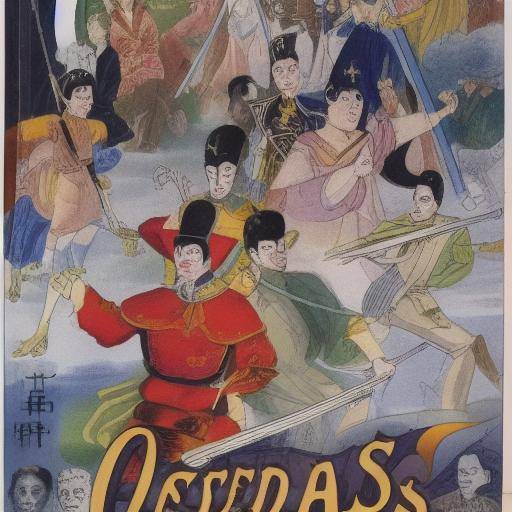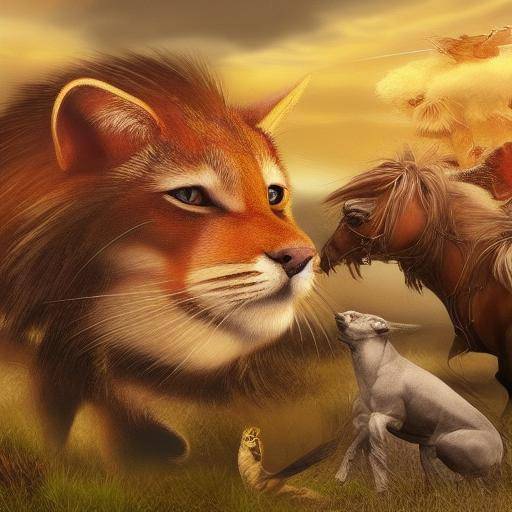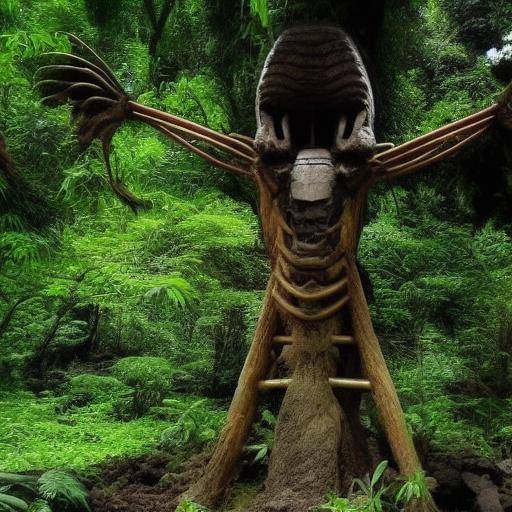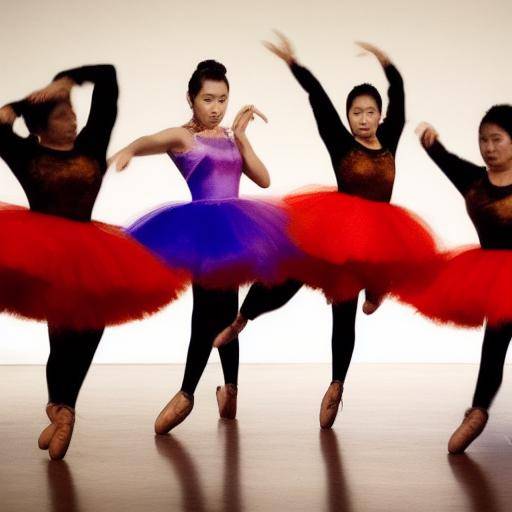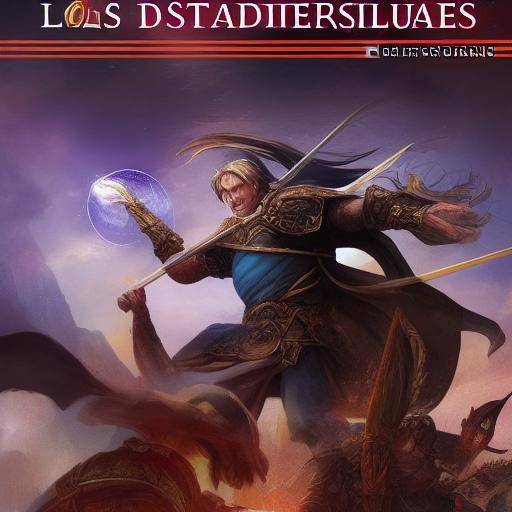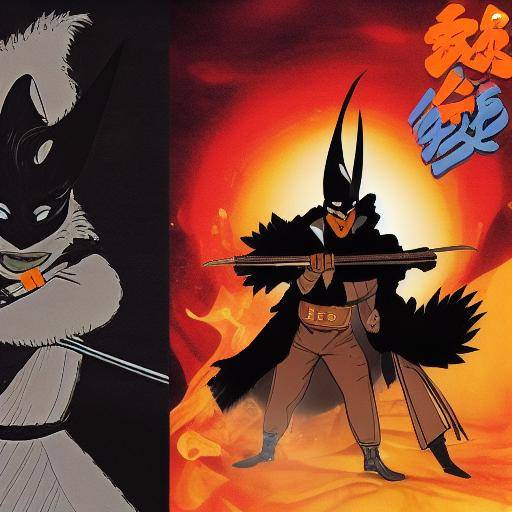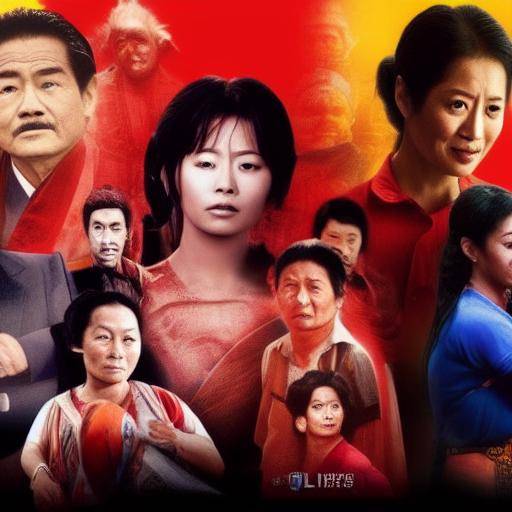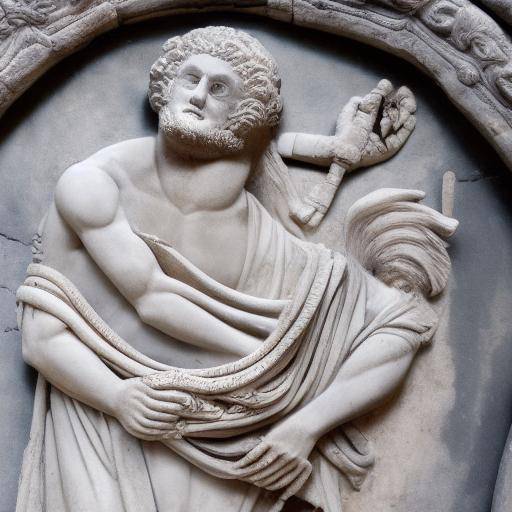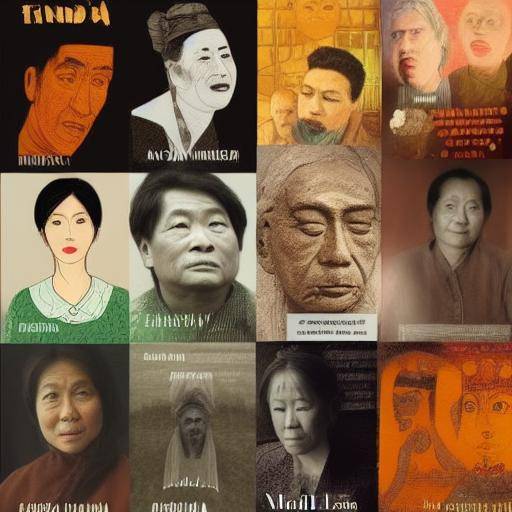
Asian legends have been an inexhaustible source of inspiration for contemporary literature. Throughout history, these narratives have captured the imagination of authors and readers, transcending cultural and temporal borders. In this article, we will explore the influence of Asian legends in contemporary literature, their historical relevance, their impact on the current context, and how they have shaped the literary panorama. From the millennial traditions of Asia to the pages of modern books, Asian legends continue to captivate audiences from around the world.
Introduction
Asian legends have their roots in ancient civilizations such as Chinese, Indian, Japanese and Korean, among others. These orally transmitted narratives over generations have been an inexhaustible source of wisdom, morality and entertainment. The richness of Asian mythology has served as a basis for a wide range of contemporary literary works, inspiring writers to explore profound themes such as love, war, adventure and spirituality. In this article, we will explore the continuing impact of Asian legends on contemporary literature, examining how these timeless narratives have found their place in modern literary creation.
History and Background
Asian legends have a long history that dates back to thousands of years, rooted in the rich oral tradition of Asian cultures. From the myths of gods and heroes to accounts of mystical and wise creatures, Asian legends have offered a myriad of inspirations for writers over time. The influence of these narratives has transcended generations and borders, finding their way in contemporary literature through adaptations, reinterpretations and new creations.
Some of the legends best known as "The West Trip" of Chinese mythology, "The Ramayana" of the Indian, and "The Story of the Bamboo Cutter" of Japan, have been reimagined in numerous contemporary literary works, serving as fundamental pieces that connect the past with the present. These stories have nurtured the imagination of writers, providing a wide range of themes, characters and scenarios that have enriched contemporary literature with their rich cultural heritage.
Deep analysis
The influence of Asian legends in contemporary literature goes beyond mere reuse of plots and characters. These narratives have provided writers with a platform to explore universal themes such as destiny, honor, duality of good and evil, and the search for truth. By integrating elements of Asian legends into their works, contemporary authors have been able to weave a complex network of meanings that resonate with a wide range of audiences.
The reimagination of these legends has also allowed writers to address contemporary issues, from the struggle for identity to resistance to oppression. By adapting and reinterpreting Asian legends, contemporary literature has managed to reflect relevant aspects of the current society, building bridges between the past and the present through an enriching and enlightening lens.
Comprehensive review
The presence of Asian legends in contemporary literature is not limited to a single genre or style. From epic fantasy to lyric poetry, and from historical narrative to science fiction, the influences of these legends have materialized in various forms. Contemporary authors have used the rich upholstery of Asian mythologies as a canvas on which to build imaginative worlds and stories that connect the past with contemporary concerns.
The diversity of Asian legends has also given writers the opportunity to explore the complexities of Asian cultures, challenging stereotypes and inviting readers to immerse themselves in rich and diverse worlds. In doing so, contemporary literature has enriched its creative palette with tonalities and nuances that come from Asian traditions, enriching the global library with a myriad of perspectives and reflections.
Comparative analysis
By comparing Asian legends with contemporary literature, you can see a fascinating intersection between the old and the modern. Despite the temporal and cultural differences, surprising parallels are revealed between ancestral narratives and current concerns. Topics such as conquest, betrayal, redemption and sacrifice echo both in Asian legends and contemporary stories, highlighting the timeliness and the lasting relevance of these narratives.
Moreover, the convergence of Asian legends in contemporary literature opens doors for an intercultural dialogue in which the literary traditions of the East and the West are intertwined and intertwined. This mutual enrichment not only enriches the global literary landscape, but also fosters a deeper and more empathic understanding of the diverse cultures that make up our world.
Practical Tips and Recommendations
If you want to explore the wealth of Asian legends in contemporary literature, we recommend you immerse yourself in works that reimagin these narratives in an innovative way. Find authors who have integrated elements of Asian mythology into their creations and explore the diversity of literary genres that have been influenced by these legends. In doing so, you can appreciate the breadth and depth of the influence of Asian legends in contemporary literature.
Industry ideas and Expert Reviews
Experts in contemporary literature point out that the influence of Asian legends remains a vital force in the current literary creation. Critics and academics praise the innovative approach of contemporary writers in their reinterpretation of Asian narratives, highlighting how these contemporary works enrich the global literary heritage with new vitality and relevance.
In the words of literary criticism Maria Rodriguez: "Contemporary literature has found in Asian legends not only a source of inspiration, but also a means to explore and question the complexities of human condition. The rich texture of these timeless narratives has contributed a unique depth to contemporary works, enriching the literary panorama with its lasting resonance. "
Case Studies and Practical Applications
To better understand how Asian legends have influenced contemporary literature, it is clearer to analyze specific case studies. Works such as "The House of Spirits" by Isabel Allende, which is inspired by South American myths and legends, or "The Story of the Raven" by Margaret Atwood, which intertwines elements of Asian folklore in a dystopic environment, exemplifies the diversity of cultural influences that enrich contemporary literature.
These examples show how Asian legends have not only enriched Asia's literature, but have also significantly permeated global literary creation, merging traditions and narratives in a captivating and revealing way.
Future Trends and Predictions
As global society continues to embrace cultural and literary diversity, the influence of Asian legends in contemporary literature is expected to continue to flourish in new and exciting forms. With greater appreciation for the traditions and mythologies of the world, contemporary writers are exploring new ways of integrating Asian legends into their works, thus generating a creative dialogue that transcends borders and connects cultures.
The predictions point to the emergence of new literary voices that will embrace Asian narratives with a fresh and original perspective, guiding contemporary literature towards an even more diverse and enriched terrain. Readers are expected to continue to seek literary experiences that reflect the complexity and beauty of Asian legends, thus inspiring writers to continue exploring and reimagining these timeless narratives.
Conclusion
In short, Asian legends have played a significant role in the configuration of contemporary literature, providing an incomparable wealth of myths, symbols and teachings to the current literary creation. From contemplative poetry to epic epopeyas, the traces of these ancient narratives extend through a wide variety of genres, enriching the global library with a diversity of voices and stories that transcend borders and eras.
The journey of Asian legends in contemporary literature is a testimony to the lasting power of human creativity, the ability to reinterpret and revitalize ancient traditions to express the longings, conflicts and aspirations of human condition in a constantly changing world. As we appreciate and explore the influence of Asian legends in contemporary literature, we embark on a journey that connects us with the depth of history and the universality of literary imagination.
Frequently asked questions
How have Asian legends influenced contemporary literature beyond Asia?
Asian legends have enriched contemporary global literature by providing a rich source of inspiration for writers around the world. In addition to offering fascinating plots and characters, these narratives have allowed authors to address universal themes and contemporary issues from a deeply rooted perspective in the rich Asian tradition.
What are some outstanding examples of contemporary works that have been inspired by Asian legends?
Works such as "The House of Spirits" by Isabel Allende, "The Story of the Raven" by Margaret Atwood, and "The Princess Mononoke" by Hayao Miyazaki are outstanding examples of how Asian legends have influenced contemporary literature and culture globally.
What challenges do writers face when reimagining Asian legends in contemporary literature?
One of the key challenges lies in deep respecting and understanding the rich cultural heritage that underlies Asian legends, avoiding stereotypes and misappropriations. Contemporary writers must address these narratives with sensitivity and deep respect for the cultural diversity they represent.
How can readers immerse themselves in contemporary literature that is inspired by Asian legends?
Readers can explore the vast and diverse contemporary literary works that have integrated elements of Asian legends, seeking authors to offer an original and enriching perspective on these narratives. Explore different genres and literary styles can offer a fascinating and revealing experience.
Is the influence of Asian legends in contemporary literature expected to continue to grow in the future?
Yes, the influence of Asian legends in contemporary literature is expected to continue to flourish as appreciation for cultural diversity and global traditions continues to increase. Writers and readers are demonstrating a growing interest in exploring and celebrating Asian narratives, which augur a vibrant future for this literary intersection.
How can contemporary literature that is inspired by Asian legends contribute to greater intercultural understanding?
Contemporary literature that nourishes Asian legends can act as a cultural bridge, fostering mutual understanding and empathy among audiences of various origins. By offering an enriched view of Asian traditions and mythologies, these works can promote intercultural dialogue that enriches and strengthens appreciation for cultural diversity, thus contributing to greater understanding and respect among global societies.
In conclusion, the presence of Asian legends in contemporary literature is a testimony to the lasting power of human creativity and the inexhaustible wealth of cultural traditions. In appreciating and exploring this literary intersection, we enter into a journey that connects us to the depth of history, the universality of literary imagination and the ability of ancestral narratives to resonate in the hearts and minds of contemporary audiences around the world.
This concludes our extensive analysis of the influence of Asian legends in contemporary literature. We hope that this article has been enlightening and enriching, and that it has provided you with a profound and exciting view on such a significant issue in the current literary landscape.
He recalls that the wealth of Asian legends remains a continuous source of inspiration and reflection for writers and readers from around the world, and their influence will persist over time in the pages of contemporary literature.
Thank you for joining us on this literary and cultural journey!

